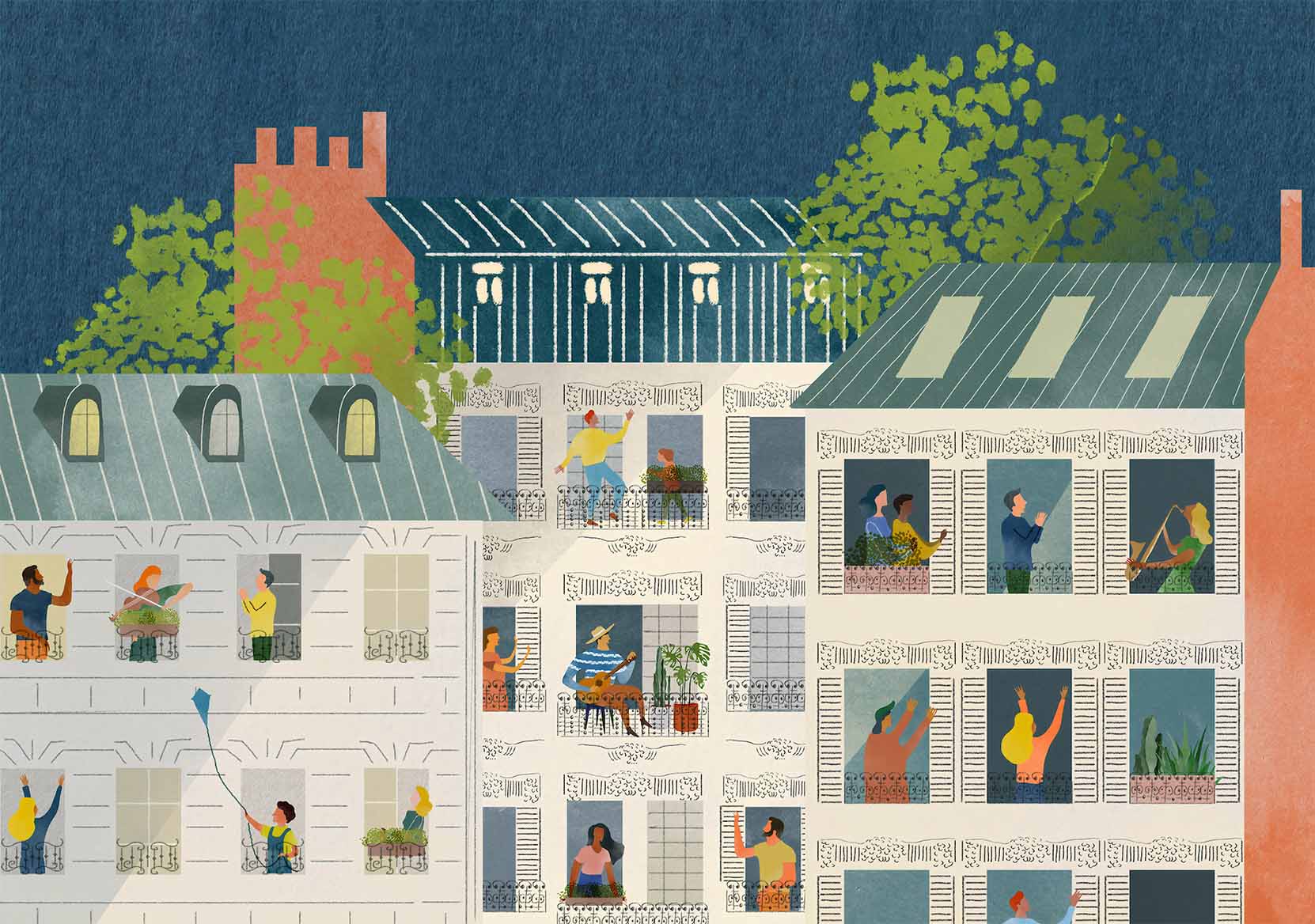Young and Renters Lose out in Lockdown
A poll conducted by Quality of Life Foundation and Portland Communications highlights how young people, people who live in towns and cities and renters are being affected by their living conditions more than other groups during lockdown.
Young people are more dissatisfied with the size, outdoor space and broadband connectivity of their homes than their older counterparts.
Those in towns and cities are much less satisfied with their homes compared to those living in the suburbs or countryside. People in rural areas reported that better access to nature and a greater feeling of support from their neighbours were helping wellbeing during this time of social distancing.
Renters also reported being less satisfied with their homes than those who own their property.
The findings highlight the growing impact the housing crisis is having on young people in particular, who are more likely to be living in urban rented accommodation.
The online poll asked a sample of the general public how satisfied they are with different aspects of their homes and communities, and to what extent this has been affected by the coronavirus lockdown. The 1,000 respondents come from cities, towns and villages across the UK, and live in a mix of housing types including flats, terraces, semi-detached and detached homes.
On average, 84% of people aged 55 or over reported that they were satisfied or very satisfied with their homes, compared to just 56% of young people between 18–24 years old. This fell to just 48% for 18–24 year olds living in towns compared with 65% living in rural areas.
Dissatisfaction amongst city and town dwellers was at 29% compared to those in the suburbs or rural areas, which were at 10% and 12% respectively.
23% of renters are dissatisfied with their living conditions compared to only 10% of those who own their homes.
As people are being forced to spend more time at home and in their local communities in response to the Covid-19 pandemic, the Quality of Life Foundation hopes that its research will encourage people to consider how their environments affect their physical and mental wellbeing — and how they can be designed and built better to improve their quality of life.

Professor Sadie Morgan, Founder of the Quality of Life Foundation, said:
“The findings of this poll highlight worrying generational and geographical disparities in quality of life during this period of lockdown, with young people living in cities struggling more as a result of their housing situation than any other group in society.
“The built environment is fundamental to peoples’ quality of life. Only now, as we are all forced to spend more time in our homes and immediate neighbourhoods, are we beginning to appreciate the impact they can have on our physical and mental wellbeing.
“This poll represents the first of a number of empirical studies that the Quality of Life Foundation will undertake during and after this period of lockdown. The research will be pivotal in gaining an understanding of how people feel about the places in which they live, so that in future, we can create thriving, healthy and sustainable places that have a positive impact on peoples’ wellbeing and the environment.”
The Quality of Life Foundation’s research programme involves a combined series of reports that will together help to understand how people think about places and communities; learn what quality of life means to homeowners and tenants; and how they think it might be enhanced through improvements to the way their homes and communities are created and cared for.